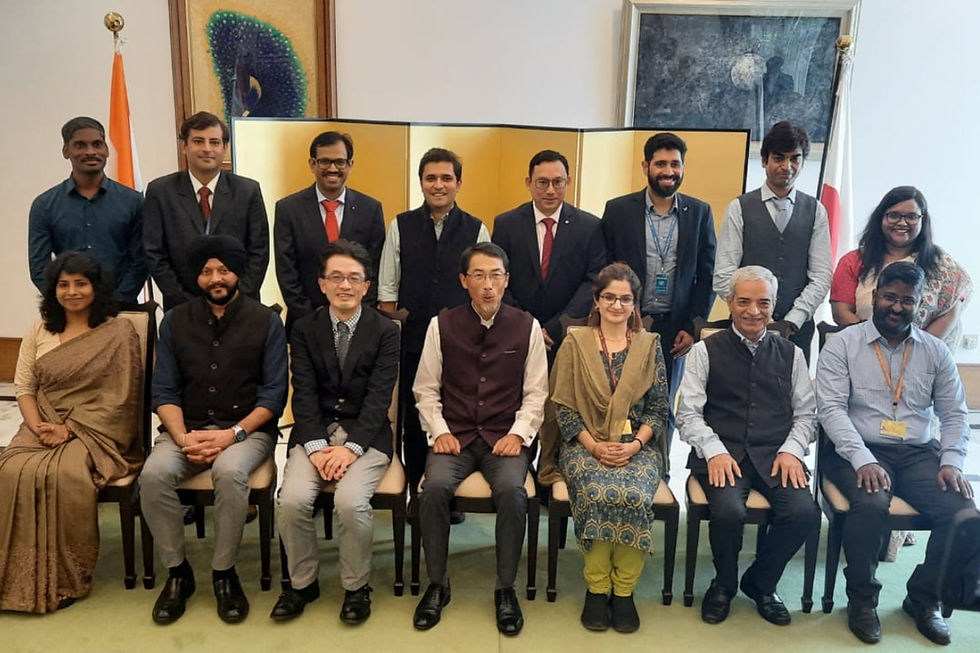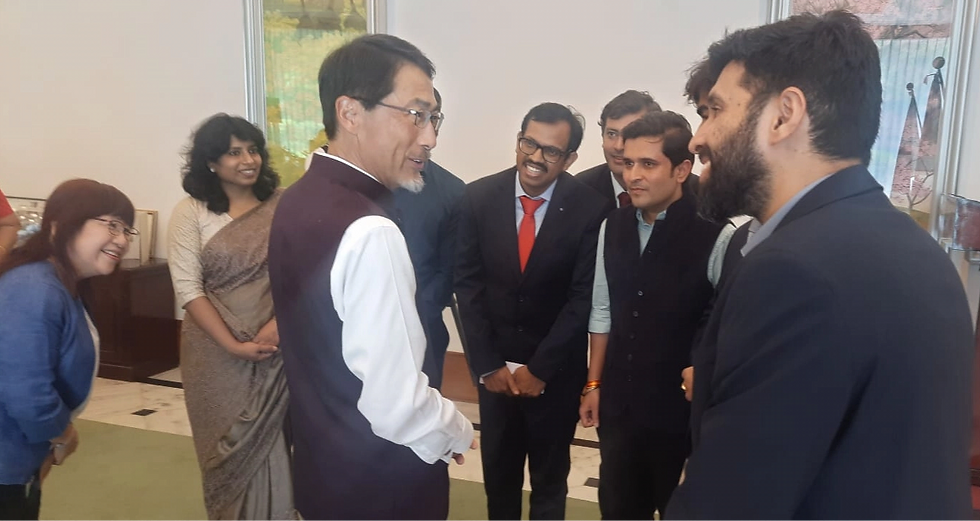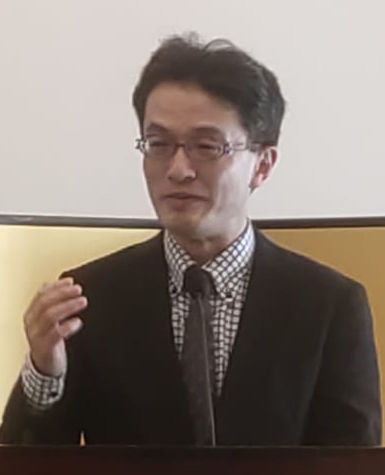India’s First Batch of JDS Fellows Departs for Japan Under Prestigious Japanese Government Scholarship Program
- peeush srivastava
- Aug 2, 2025
- 4 min read
Updated: Aug 3, 2025
New Delhi, August 1, 2025
The Embassy of Japan in India hosted a special send-off ceremony today at the Ambassador’s Residence to celebrate the departure of the first batch of Indian fellows selected under the prestigious Japanese Government’s “Project for Human Resource Development Scholarship” (JDS). The event marked a milestone in Japan–India cooperation in human resource development and institutional capacity-building.

Launched in 1999 under Japan’s “100,000 Foreign Students Plan,” the JDS program is designed to nurture young government officials from partner countries by providing them with the opportunity to pursue postgraduate studies in Japan. These individuals are expected to return and contribute to policy planning and administrative reforms in their home countries, while also fostering deeper bilateral understanding.
The India-specific JDS program was formally launched in 2024. Following a rigorous selection process, nine young government officials — with an average age of 38.2 — were chosen from key services such as the IAS, IRS, IRSE, ITS, IRTS & IA&AS. Beginning this August, they will pursue two-year master’s degrees at leading Japanese institutions including the University of Tokyo, Waseda University, Hitotsubashi University, and Kobe University.
Delivering his remarks at the ceremony, Keiichi ONO, Ambassador of Japan to India, extended his warm congratulations to the nine selected Indian fellows. "These fellows — the very first batch under the JDS project in India — have been carefully selected through close collaboration with relevant ministries of the Government of India. I am genuinely delighted that they will soon embark on their studies in Japan," he said.

Ambassador ONO underscored the strategic value of such exchanges, stating, “The knowledge and experience they acquire are expected to make a significant contribution to policy-making and governance in India. At the same time, their time in Japan will deepen mutual understanding and trust between our two nations.”
Ambassador further highlighted the evolving nature of the bilateral relationship, noting, “Japan and India have long shared deep and multifaceted ties. In recent years, this has evolved into a Special Strategic and Global Partnership. Yet, the current scale of people-to-people exchanges does not fully reflect the depth of our historical ties nor the strategic importance of our bilateral relationship.”
The Ambassador emphasized that people-to-people exchanges have become one of the highest priorities for both governments, especially in the wake of the Japan-India Leaders’ Meeting held in October 2024. “The JDS project is both timely and meaningful. It not only cultivates the next generation of leaders but also serves as a vital bridge connecting the people of Japan and India,” he said.
Addressing the fellows directly, Ambassador ONO acknowledged the challenges of living and studying abroad but encouraged them to embrace the experience with an open mind and courageous heart. “Each challenge you overcome will become a source of personal growth, resilience, and insight. I am confident you will return with new perspectives and a renewed determination to contribute to India’s development and our bilateral ties.”

JICA’s Commitment to Capacity Building

Echoing the Ambassador’s views, Takuro Takeuchi, Chief Representative of the Japan International Cooperation Agency (JICA) in India, emphasized the program’s alignment with the vision of both Prime Ministers. “As ambitioned by the Honourable Prime Ministers of India and Japan, enhancement of people-to-people exchange is a key step to take our relations to the next level,” he said.
“JICA is proud to contribute to this important mission by extending study opportunities in Japan for Indian government officials through the JDS program. Since the signing of the grant agreement in July 2024, the joint effort of all stakeholders has led to the successful selection of these nine capable officials,” he added.
DoPT Encourages Cultural Immersion and Institutional Impact

Representing the Government of India, Chhavi Bhardwaj, Joint Secretary (Training), Department of Personnel and Training (DoPT), delivered a heartfelt message to the departing fellows. “We look up to Japan not just as one of the most industrialized nations in the world, but as a country rich in cultural traditions, ethos, and time-tested values that continue to enrich the global community,” she said.
Encouraging the fellows to go beyond academic excellence, Chhavi Bhardwaj added: “While I enjoin upon all of you to take your courses seriously and excel, I also urge you to study Japanese culture and the discipline that is so firmly entrenched in their way of life. Bring that sense of responsibility and attention to detail back to your workplaces and help enrich your organizations.”
She further highlighted the relevance of Japan’s practices in India’s development journey. “As we aim to become a developed nation by 2047, there is no better country to draw inspiration from than Japan—not just in terms of outcomes, but in terms of processes, rigor, and quality. I hope all nine of you will absorb these values and spread them across your respective institutions upon return.”
Looking Ahead
A representative fellow Abhishek Mishra spoke on behalf of the cohort, expressing gratitude and a strong sense of responsibility. The event concluded with an informal networking over refreshments.
As these officers embark on their academic journeys, the JDS initiative emerges not merely as a scholarship program, but as a vital bridge—cultivating next-generation leaders and bringing Japan and India closer through mutual learning and enduring friendship.


%20(2)_edited.jpg)





Comments